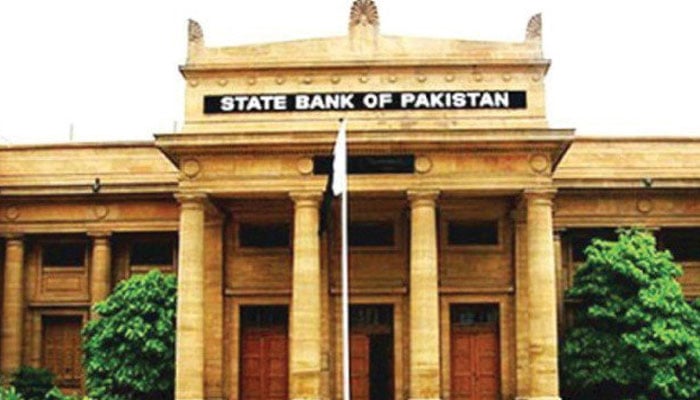SBP advises Islamic banks to tap underserved sectors
KARACHI: Islamic banking industry needs to expand its outreach to underserved agriculture, small and medium enterprise and house financing sectors to overcome liquidity management challenge, the central bank governor said on Wednesday.
“The inherent advantage of Islamic financial industry to fund projects on equity participation and profit sharing basis enables it to cater to the huge, unmet demands of underserved sectors such as agriculture and SMEs,” Governor State Bank of Pakistan (SBP) Tariq Bajwa said.
Bajwa was addressing a launching ceremony of Urdu version of Accounting and Auditing Organization for Islamic Financial Institutions (AAOIFI) shariah standards.
“Like conventional industry, Islamic banks are also not effectively serving these sectors,” he added.
Bajwa said the SBP is persuading the industry to capitalise on its innate strengths to cater to the needs of these underserved sectors, including housing.
“Increased focus of incumbent government on this (housing) sector provides Islamic banks an opportunity to diversify their asset portfolio,” he said.
“I am confident that present conducive environment provides opportunity to Islamic banking industry to tap potential in low income housing through diminishing musharaka instruments. This would also pave the way towards the ultimate objective of Islamic finance. i.e. Maqasid-e- Shariah.”
SBP Governor said effective liquidity management has been the key challenge of Islamic banking industry.
“This issue has gained more prominence owing to factors like dearth of shariah compliant investment opportunities, limited availability of shariah compliant money market instruments and absence of shariah compliant SBP standing facility,” he added.
Bajwa said sovereign sukuk being issued since 2008 provides the key liquidity management avenue to the domestic industry, “however, demand for such instruments far surpasses their supply”.
The SBP’s governor said the SBP, in consultation with industry, is working to develop alternate solutions for liquidity management for Islamic banking industry.
The central governor further said standardisation in Islamic finance is essential to address various issues facing the Islamic finance in addition to promote disclosure, transparency and integration into global financial system.
The SBP has a long standing association with AAOIFI. As a member of the AAOIFI’s board of trustee, State Bank contributes in the overall oversight and supervision of its operations.
SBP has so far adopted six of the AAOIFI’s standards while another eight to 10 standards are in the final stages of implementation. SBP advised the banks to refer the AAOIFI’s standards for guidance in different areas of Islamic finance.
“I believe this urdu version of the shariah standards will be instrumental in improving awareness about Islamic finance especially amongst the shariah scholars, academia and practitioners of Islamic finance,” Bajwa said.
“The scholars and all other experts involved in this project deserve great appreciation for their commendable role.”
-
 Marc Anthony On Why Bad Bunny’s Super Bowl Show Mattered
Marc Anthony On Why Bad Bunny’s Super Bowl Show Mattered -
 Kid Rock Gets Honest About Bad Bunny’s Performance At Super Bowl
Kid Rock Gets Honest About Bad Bunny’s Performance At Super Bowl -
 Kylie Jenner Reveals Real Story Behind Her 'The Moment' Casting
Kylie Jenner Reveals Real Story Behind Her 'The Moment' Casting -
 Halsey Marks Fiancé Avan Jogia's Birthday With Emotional Note
Halsey Marks Fiancé Avan Jogia's Birthday With Emotional Note -
 China: Stunning Drone Show Lights Up Night Sky Ahead Of Spring Festival 2026
China: Stunning Drone Show Lights Up Night Sky Ahead Of Spring Festival 2026 -
 Andrew's Epstein Scandal: Will King Charles Abdicate Following King Edward's Footsteps?
Andrew's Epstein Scandal: Will King Charles Abdicate Following King Edward's Footsteps? -
 Billy Joel Leaves Loved Ones Worried With His 'dangerous' Comeback
Billy Joel Leaves Loved Ones Worried With His 'dangerous' Comeback -
 Prince William Dodges Humiliating Question In Saudi Arabia
Prince William Dodges Humiliating Question In Saudi Arabia -
 Dax Shepard Describes 'peaceful' Feeling During Near-fatal Crash
Dax Shepard Describes 'peaceful' Feeling During Near-fatal Crash -
 Steve Martin Says THIS Film Has His Most Funny Scene
Steve Martin Says THIS Film Has His Most Funny Scene -
 Kensington Palace Shares Update As Prince William Continues Saudi Arabia Visit
Kensington Palace Shares Update As Prince William Continues Saudi Arabia Visit -
 Fugitive Crypto Scammer Jailed For 20 Years In $73m Global Fraud
Fugitive Crypto Scammer Jailed For 20 Years In $73m Global Fraud -
 Will Andrew Mountbatten-Windsor Finally Go To Jail Now That King Charles Has Spoken Out? Expert Answers
Will Andrew Mountbatten-Windsor Finally Go To Jail Now That King Charles Has Spoken Out? Expert Answers -
 Melissa McCarthy Reveals Her Tried And Tested ‘corpse’ Night Time Routine That’s Lost Her 95lbs
Melissa McCarthy Reveals Her Tried And Tested ‘corpse’ Night Time Routine That’s Lost Her 95lbs -
 Horrifying Pictures Of The Kidnapper Of Savannah Guthrie's Mother Released
Horrifying Pictures Of The Kidnapper Of Savannah Guthrie's Mother Released -
 Andrew's Ex-girlfriend Launches Brazen Attack On Epstein Victims On Piers Morgan Show
Andrew's Ex-girlfriend Launches Brazen Attack On Epstein Victims On Piers Morgan Show




